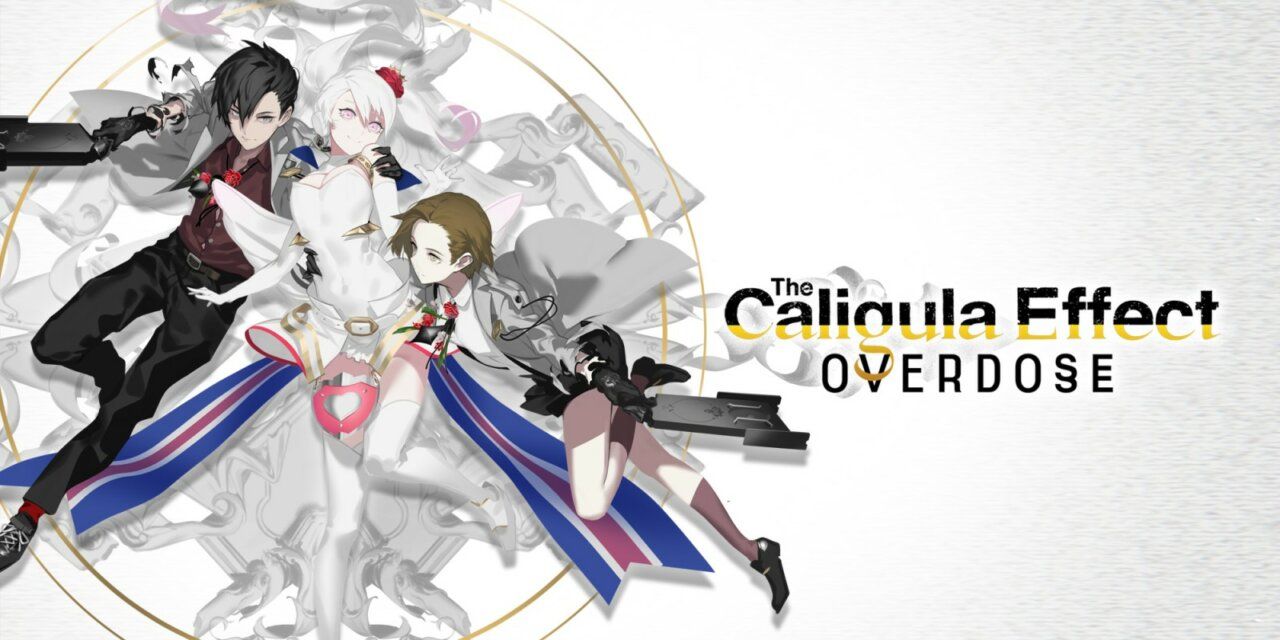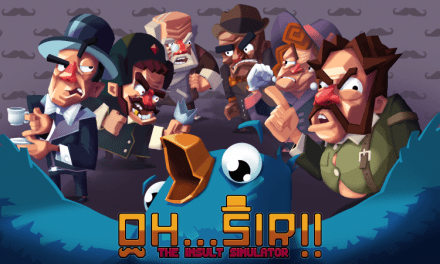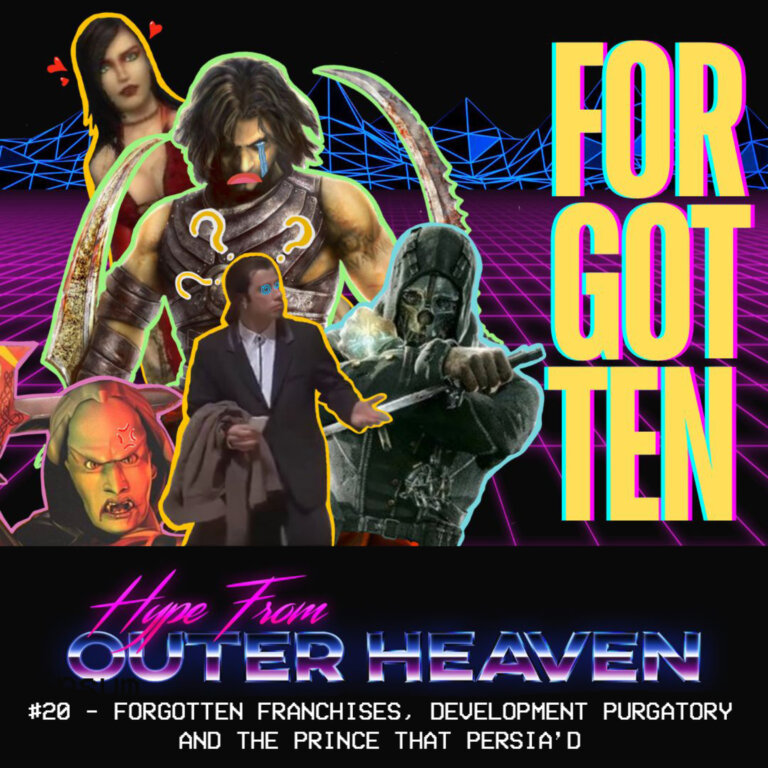Poor Man’s Persona
The Caligula Effect: Overdose is a game that I have heard about over the years but it’s one that I had yet to play or experience. With having a release on PlayStation 5 after some years ago already being re-released on PlayStation 4, I have now had a chance to give it a go.
From the get go The Caligula Effect throws a lot of your already known well versed JRPG tropes into the mix into it’s own formula. If you’ve played many JRPG’s then you won’t be surprised by them. The game is set in a Metaverse world which serves as an escapism from the real world. Throw some Schools, Students and Social levels into the Mix and if it doesn’t sound like Persona, Akiba’s Beat or Tokyo Xanadu yet then read on.
The Metaverse or “Mobius” is known for being built on an escape for reality and within this world are now 2 warring factions. As the protagonist you play as part of the go home club which is self explanatory and you will be fighting against those that are against it and wanting nobody to return to reality.
The game does well in explaining everything but at times I felt the opening was lacking any emphasis but this is a problem that continued throughout in my playthrough. While the game looks good, if this is a game that is meant to somehow showcase the power of the PlayStation 5 then I have to ask, how is it doing so? It’s not unusual for games to be re-released on next gen consoles but without any updates to graphics or performance then it doesn’t translate to anything more than just a cash grab. If there is a reason why I should play The Caligula Effect: Overdose on the PlayStation 5 over the PlayStation 4 then I would love to know.
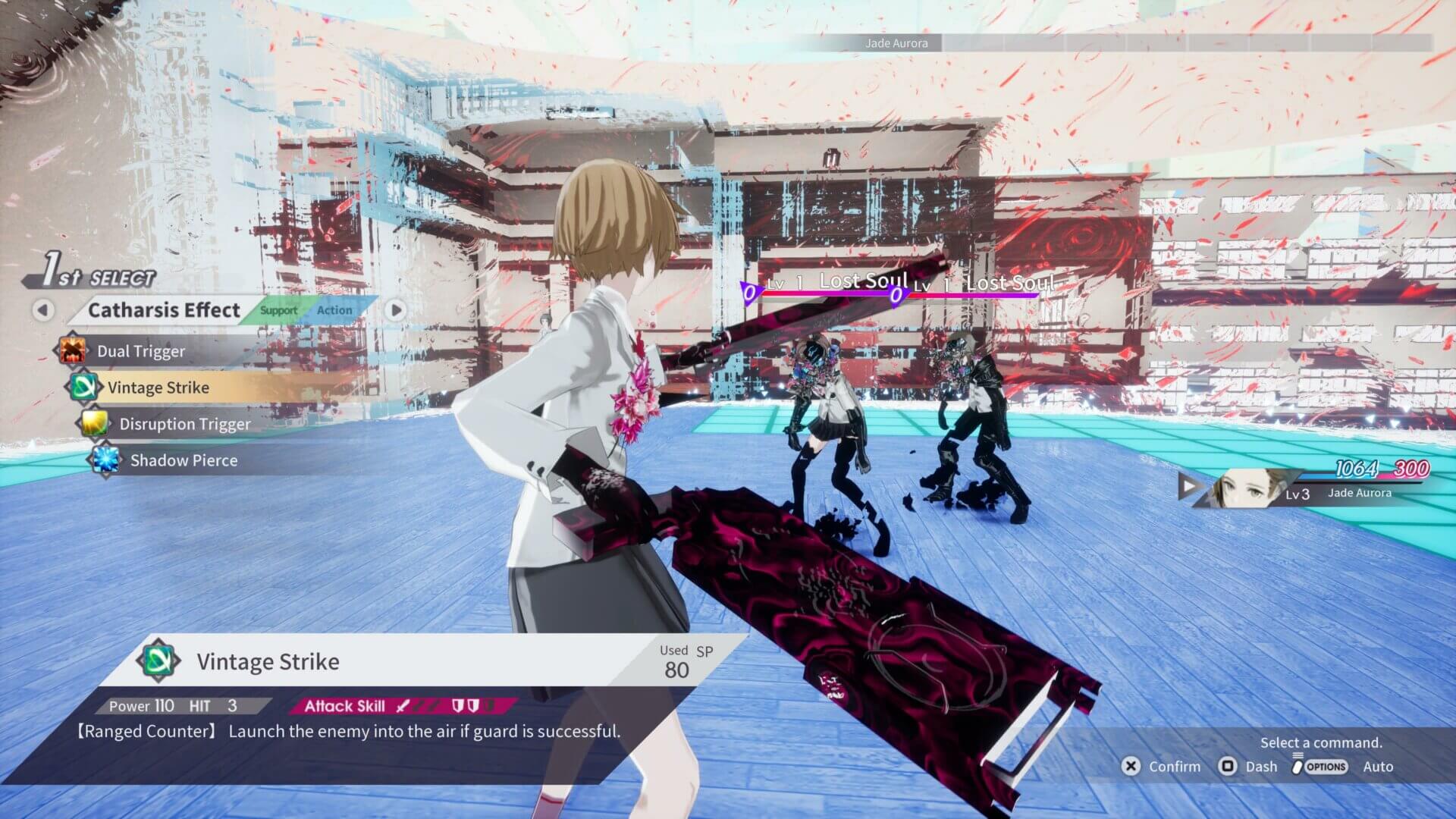
So while the game looks okay some parts definitely look better, some of the cutscenes during the opening definitely felt janky at times which felt very jarring when I got into the crux of the game which is the actual gameplay and opened up the main menu. The actual interface of the game is the most graphically pleasing part of it. It looks as though it was created as some sort of art project in Adobe Photoshop and it is so smooth and done very well and this carries on throughout the whole game. I was also jaw dropped when I saw an overwhelming menu of nodes after seeing the Causality Link screen. There are 524 to be exact which is the total number of students you can actually interact and form bonds with, that is until I realized it isn’t as impressive as it sounds. Most of the time they have nothing good to say and repeated themselves during my first time speaking to them, they would repeat themselves as I bonded my level further with them.
The battles themselves are for sure the saving grace when it comes to The Caligula Effect: Overdose. Enemies can be seen and initiated by touching them on the screen. You are able to position yourself and your friends on screen before being able to go all in on your enemies. You can line up abilities before attacking and The Caligula Effect has a nice feature which allows you to see these actions taking place before you actually act out on them, you can then co-ordinate your other team members to attack whilst an enemy is most vulnerable (in the air) for example which is a really cool feature and not one I have seen in too many turn based games. It’s a system which takes a bit of getting used to but when you pull it off, it is a huge dopamine hit.
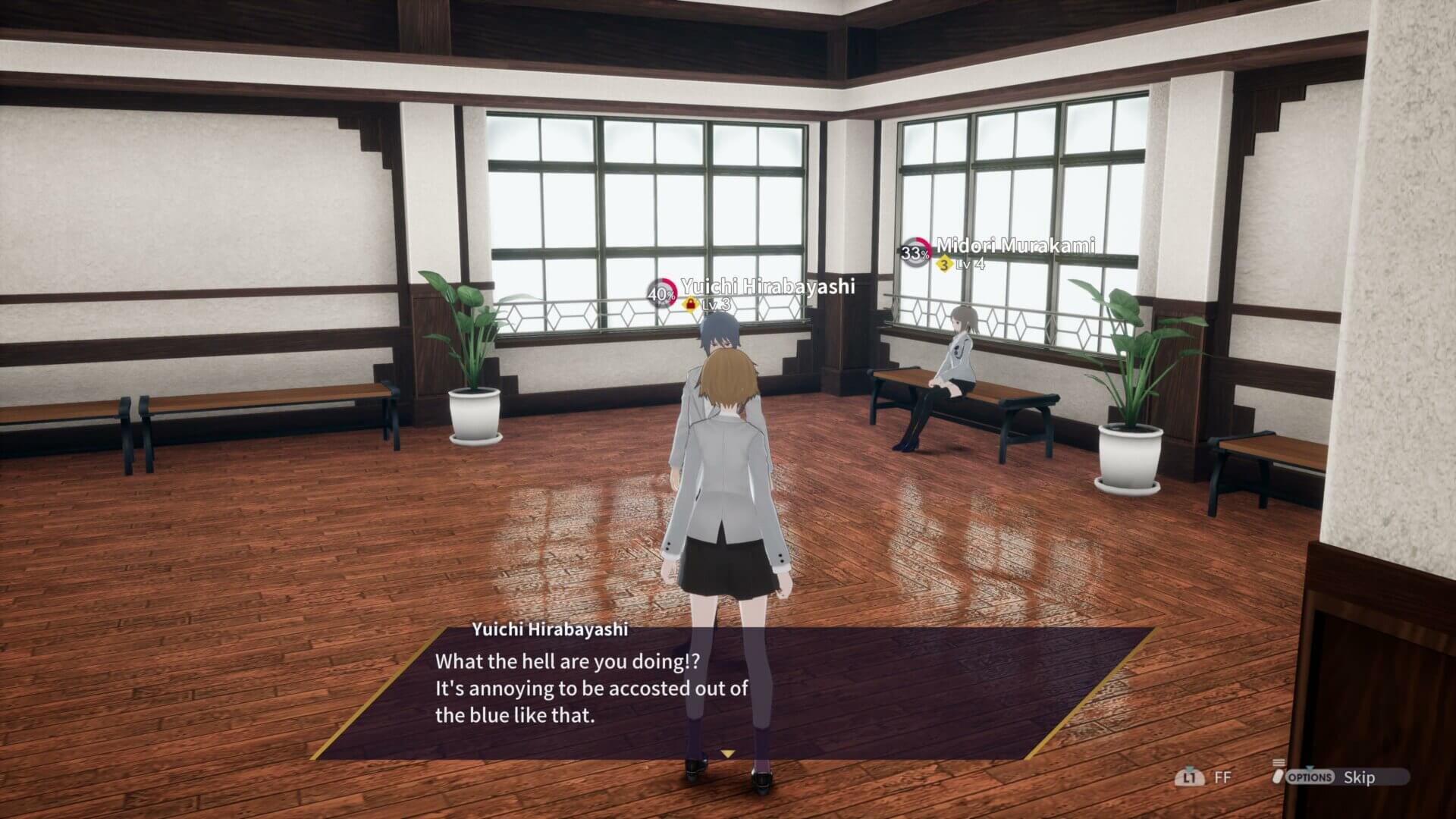
The Caligula Effect: Overdose can unfortunately feel very sluggish to get through at times. This is due to the narrative of the story and some sections where enemies spawn had to be fought several times due to having to backtrack meaning battle after battle of the same enemies over and over again. I don’t mind the battles themselves but a bit of variety especially in enemy design would not go amiss. Whilst most of the level and world design does look good even though it does sometimes feel copy and paste and can at times feel very choppy.
Music and Sound design is good but be prepared to read a lot as there is no English voice acting here. The game deals with some tones and themes as you would expect from a game of this caliber such as mental illness and deals with them well, just don’t expect a big emphasis on emotions and seeing those points coming across more powerful as you would expect.
Overall The Caligula Effect: Overdose is just fine. It’s not a ground breaking game by any means, like going into a Maid Café in Japan and having Cheesecake, only it was slightly more disappointing than the better Cheesecake that you had elsewhere, it’s good just not as great.
A PlayStation 5 Review Code was provided by NIS America

